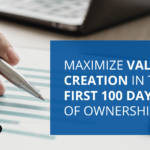No buzz word, tool, or technology will change your business without a thorough understanding of the how and why. The concepts behind BI and BA are incredibly powerful but must be coupled with a detailed understanding of the impact they will have on the people, processes, and metrics that drive your business.
Let’s explore what business intelligence and business analytics are and what they can do for you.
What’s It All Mean?
The simple answer: no one knows!
There is little doubt that the marketplace is confused over the true meaning of Business Intelligence (BI) vs Business Analytics (BA). With varying definitions from Wikipedia to Gartner to SAS to SAP, there is no one widely accepted definition.
We find repeated terminology across different sources [data mining, data driven decisions, modeling, tools, data analysis] that cloud a business user’s understanding of what these terms actually mean.
With all this confusion, how can we have a conversation about what my business is trying to achieve relative to the terminology that defines a tool? Or is it a service? Wait, maybe it is an industry…
Whatever “It” Is, It’s HOT!
All I know is that whatever it is, it is hot! BI/Analytics is once again the #1 technology priority for CIO’s in the 2016 [per annual Gartner CIO surveys]. The streak of BI/Analytics as the #1 technology priority for CIOs surpasses the 90’s Bulls, the Showtime Lakers, and has reached the status of the Wooden Era UCLA Bruins.
So what is it? First, let’s look at the terminology that is the most accepted across different sources:
Business Intelligence (BI)
- An umbrella term that includes many underlying functions regarding applications, data, infrastructure, and analysis. (This is not helping!)
- The discovery and analysis of information to support decision making. (REALLY?!?)
- BI uses past and current data consumption to interpret the current state of the Business. (Maybe this makes BI unique? Never mind, I am still confused)
Business Analytics (BA)
- Business Analytics are solutions/processes to evaluate and measure performance. (How is this different from BI?)
- BA can be used to describe several specializations that includes statistics, modeling, and data mining to analyze, interpret, or predict business scenarios (<sigh>)
- BA collects and analyzes data to influence decisions, aka “data driven decisions,” and utilizes predictive analytics to identify opportunities before they have occurred (So BA is future and BI is current?)
All Right. Now What?
So where do we go from here? Why don’t we try a different approach. Let’s define what we know Business Intelligence and Business Analytics are not:
- Business Intelligence AND Business Analytics are not simply a chart, a table, or graph (I like this approach!)
- Business Intelligence AND Business Analytics are not physical objects that can simply be “turned on.” Both require intelligent integration with existing business processes to drive decisions and change in the business. (I can get behind this concept!)
My contention with the root of this question is that if you are reading this blog post, you probably don’t actually care. You are reading this to understand the difference and see how it impacts your business. (Halleluiah!)
This is the real question: How do I take this ambiguous terminology and ensure that investing in Business Intelligence/Business Analytics positively impacts my business?
Here is the real answer: If you cannot understand the decision or process being impacted within your business AND clearly communicate how it is being impacted, then no real transformation is taking place and terminology doesn’t matter.
We’ve spent the last six years building one of the best mid-market Business Intelligence & Analytics teams in the country. We stand at the ready to help you turn your data into information, that information into insights, and those insights into action that grow your bottom line.
What’s Next??
Meet our team and explore some of the results we’ve helped local leaders achieve.
Schedule a meeting with Bobby or Geoff to explore how you can get more out of your data.







